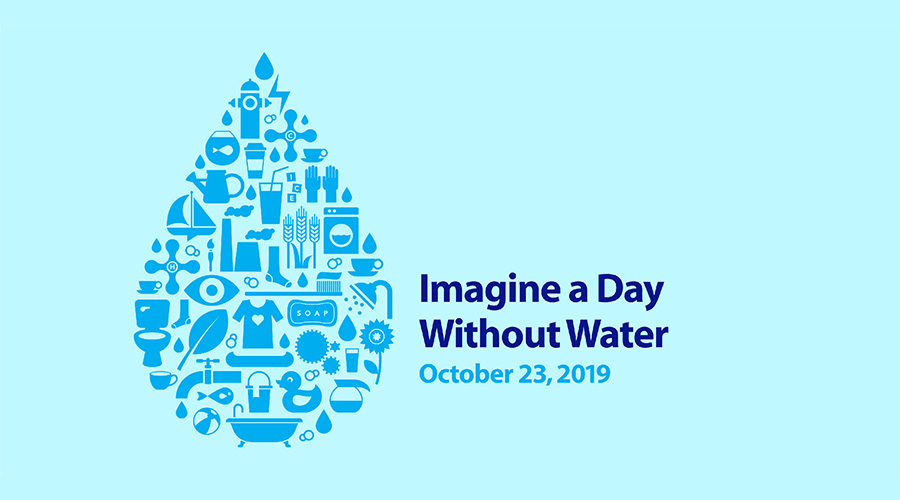
What would you do if you didn’t have water? How would you get by? Water constantly surrounds us. But what would happen if in an instant it was gone? How would we eat? Bathe? Drink?
Hygiene would become poor. No water for washing, no water for flushing, no water for cleaning. Jobs would be impacted as well – firefighters would have no water to fight with, restaurants would have no water to cook with, farmers would have little-to-no crop yield.
Today is national Imagine A Day Without Water, and ImpactED is supporting the cause through our Drink Philly Tap program. Imagine a Day Without Water 2019 is the fifth annual day dedicated to raising awareness and educating America about the value and importance of water. Drink Philly Tap supports this campaign in order to promote awareness around Philly’s tap water being safe, healthy, affordable, and good for the environment.
The impacts of a day without water are tremendous; a study carried out by the Value of Water Campaign finds that a single day’s disruption of water would result in a loss of “$43.5 billion in sales and $22.5 billion in GDP.”
But efforts are being made. In Philadelphia, the Philadelphia Water Department (PWD) is working to improve the quality of accessible water. Closer facilitation of Philadelphia’s three drinking water treatment plants and routine checks of water infrastructure are among the PWD’s foci.
As of now, the major water concerns that we face worldwide include and are not limited to issues of drought, water contamination, and water equity and access. In America, one of the major ongoing issues is the Flint Water Crisis, where water supply has a high lead concentration. This has led to what has been described as “a highly public crisis of confidence in the water supply.” Studies carried out by the PWD and ImpactED find that the greatest alternative to tap water is bottled water: 40% of the population consumes it.
The Netflix series ‘Rotten’ features an episode on bottled water, outlining these major issues. A poll found that Americans viewed water quality “as serious a public health concern as heroin abuse.”
However, ‘Rotten’ highlights Philadelphia as an impressive exception. The episode notes that “even half a century old, [the Baxter treatment plant] provides safe, clean drinking water to 750,000 people” straight to tap. Author Charles Fishman adds that a bottle of water bought at a convenience store can be refilled “every day at home for 8 years.” The truth is, all communities need a public water utility like PWD that provides safe, reliable water. Philadelphia is constantly looking for ways to improve its water infrastructure. Today, the treatment plants continuously filter approximately 150 million gallons of water daily. Keeping the Flint water crisis in mind, the PWD has also been actively ensuring that Philadelphia has a lead-free main piping system.
The PWD is not alone in this effort. PennEnvironment carries out water research, advocacy and has a large network of volunteers. Most notably, their Clean Water Network helps to connect over 250 local and regional watershed protection groups, providing Philadelphia with a strong foundation upon which it can consider its water issues. Additionally, the Water Center at Penn is a leader in the conversation of sustainable water usage, engaging in innovative discourse with global leaders and policymakers to confront the obstacles surrounding long-term water resiliency.
Of course, it is important to consume water responsibly and sustainably. To combat the growing distrust of tap water and better understand its uses, the PWD, PennEnvironment, ImpactED and the Water Center at Penn have formed the Drink Philly Tap initiative. Drink Philly Tap brings water safety and accessibility to the forefront, acting as a connector between water and sustainability in Philadelphia.
There are ways that you can help with water equity and access, too. You can pledge to choose tap water over bottled water at this link: https://drinkphillytap.org/pledge/, and follow Drink Philly Tap on Twitter and Facebook to stay informed on all things tap.



